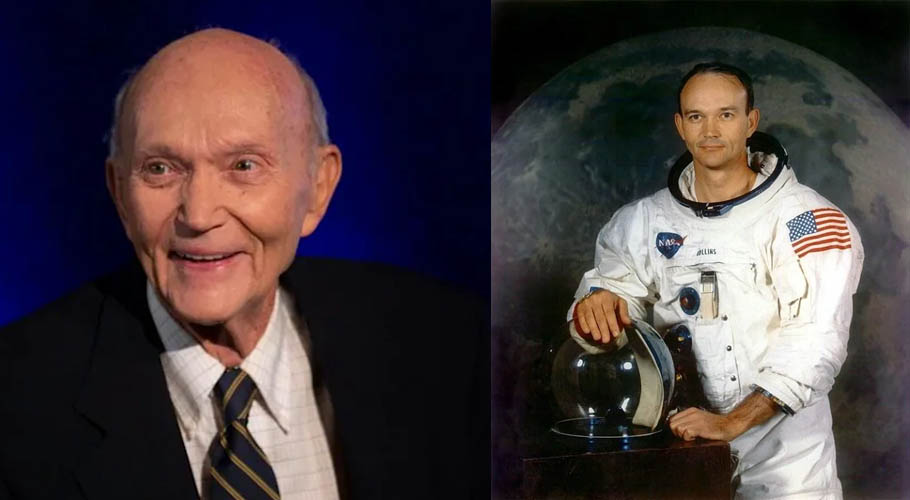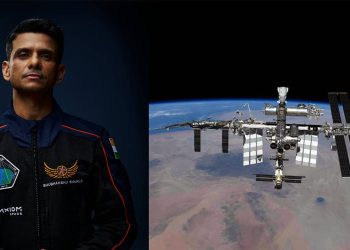HOUSTON: American astronaut Michael Collins, who piloted the Apollo 11 command module while his crewmates became the first people to walk on the Moon, has died after battling cancer.
Sometimes called “the loneliest man in history” because of his long solo flight while his colleagues loped across the lunar surface, Collins never earned the same global name recognition as Neil Armstrong and Buzz Aldrin.
But he was hailed as a lifelong advocate of space exploration maintaining in a 2009 interview with NASA that his historic accomplishments were “90 percent blind luck” and that astronauts should not be celebrated as heroes.
“Mike always faced the challenges of life with grace and humility, and faced this, his final challenge, in the same way,” Collins’ family posted on his official Twitter account.
Crewmate Aldrin led the tributes, writing on Twitter: “Dear Mike, Wherever you have been or will be, you will always have the Fire to Carry us deftly to new heights and to the future. We will miss you. May you Rest In Peace.”
US President Joe Biden said that while Collins “may not have received equal glory,” he was “an equal partner, reminding our nation about the importance of collaboration in service of great goals.”
Dear Mike,
Wherever you have been or will be, you will always have the Fire to Carry us deftly to new heights and to the future. We will miss you. May you Rest In Peace. #Apollo11 pic.twitter.com/q4sJjFdvf8— Dr. Buzz Aldrin (@TheRealBuzz) April 28, 2021
Born in Rome in 1930 to a US army officer serving as military attache there, Collins went on to become a fighter pilot and test pilot with the air force.
He applied to NASA after being inspired by John Glenn, the first American to orbit the Earth, and was selected to be an astronaut in 1963. Collins’ first spaceflight was on the Gemini 10 mission, where he made a then record-breaking two spacewalks.
He is best known for being a member of the Apollo 11 mission when, on July 20, 1969, his crewmates Neil Armstrong and Buzz Aldrin took their giant leaps for mankind.
Remarking on Collins’ role, a NASA press officer would later tell reporters: “Not since Adam has any human known such solitude.”
Collins spent half a century trying to debunk that myth. “I would enjoy a perfectly enjoyable hot coffee, I had music if I wanted to,” he said at a 50th anniversary event in 2019.
“Good old Command Module Columbia had every facility that I needed, and it was plenty big and I really enjoyed my time by myself instead of being terribly lonely.”
He was worried, however, that Armstrong and Aldrin might not make it back alive, remarking once that being the mission’s sole survivor would have made him “a marked man for life.”
We mourn the passing of Apollo 11 astronaut Michael Collins, who piloted humanity’s first voyage to the surface of another world. An advocate for exploration, @AstroMCollins inspired generations and his legacy propels us further into the cosmos: https://t.co/47by569R56 pic.twitter.com/rKMxdTIYYm
— NASA (@NASA) April 28, 2021
Apollo 11 was a success and after the crew splashed down in the Pacific, they embarked on a worldwide tour, and were all awarded the Presidential Medal of Freedom.
Collins turned down an offer to command his own Moon mission and went on to become a diplomat, serving as assistant secretary of state for public affairs.
He later became the first director of the National Air and Space Museum in Washington, and authored numerous books on space including his autobiography “Carrying the Fire.” He retired in Florida, living with his wife Pat until she died in 2014.




































